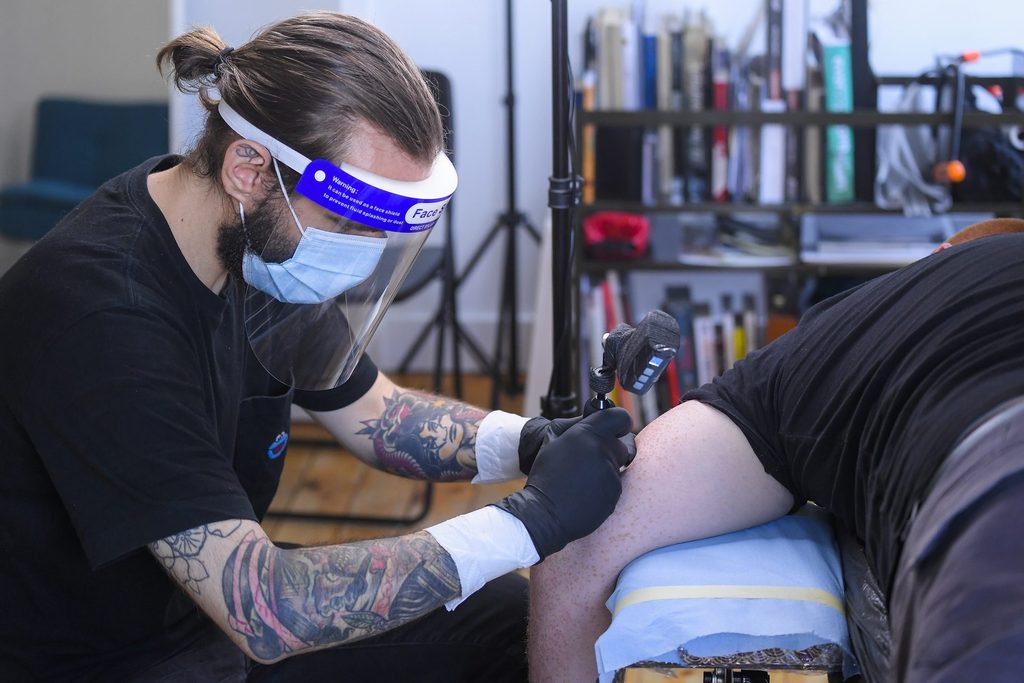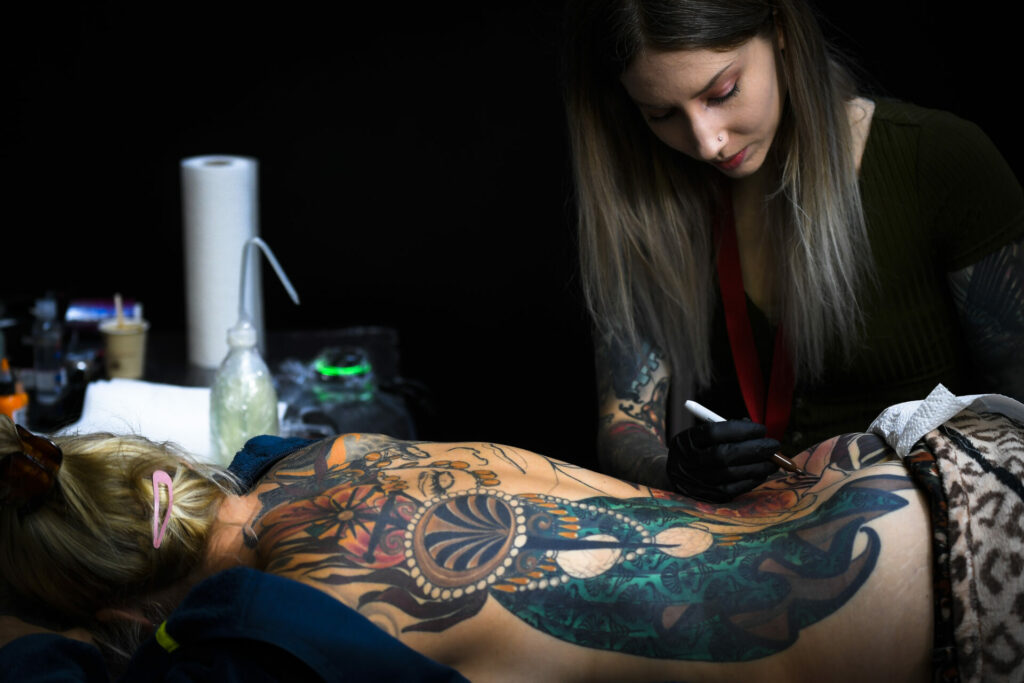Tattoos have undergone a remarkable transformation in recent years, shedding their former associations with prisoners and sailors to be adopted by a diverse population, particularly younger generations that see inked skin as a new mode of self-expression.
In Belgium, an astonishing 500,000 individuals have tattoos annually according to Statbel figures from 2017. Tattoos range from humorous sketches to intricate works of art, with diverse aesthetics and meanings.
Getting a tattoo has become commonplace, often without any particular reasoning behind a design. But for many, tattoos remain a means of permanently remembering events, loved ones, or places. They may also serve as a therapeutic outlet for trauma or a way to conceal painful memories.

A tattoo shop in Brussels, Tuesday 02 June 2020. Credit: Belga
One noteworthy development in this tattoo renaissance is the rise of therapeutic tattooing. In Brittany (France), Brigitte Lelu-Muguet opened "Chemins d'AEncrage" just over a year ago – a salon dedicated to therapeutic tattoos, assisting individuals with scars, both visible and invisible.
Her clients come with diverse stories of grief, survival, recovery from suicide attempts, domestic violence, or battling illnesses.
In cases of physical trauma or illness, scars can serve as painful reminders of challenging times. Tattoos designed to conceal such scars have gained popularity. Patients who undergo a mastectomy (breast removal) can even have tattoos reimbursed in some countries.
Yet, some scars are emotional wounds, and tattooists who provide therapeutic body art also take into consideration the individual's emotional state before starting any work. “We often have requests to hide scars,” one of the artists at Singulier Tattoo in Brussels told The Brussels Times. “We try to support people as best we can for their project and restore their self-confidence. The approach is often therapeutic with psychological support.”
Related News
- 'Tittoos': Tattoos changing the lives of breast cancer survivors
- 'Demand is booming': The growing trend of tattoo removal
The idea of permanently marking one's body to overcome trauma may seem counterintuitive but it can be a powerful way to reclaim one's narrative. On social media, symbols like Medusa have been adopted by survivors of sexual assault, transforming a symbol of pain into one of strength.
Therapeutic tattoo artists believe in the positive effect of body art, empowering clients and helping them move beyond their pain.
Beyond the choice of design, therapeutic tattoos have tangible effects on the individuals, offering a path to self-reclamation when external traumas have eroded their sense of self.
Advocates of therapeutic tattooing therefore believe that this practice can be an important form of mental health support and many have called for associations to be created to give artists helping those in need an official framework to operate in. They feel that therapeutic tattooing must gain visibility while maintaining ethical standards, as it helps people on their journey to healing and self-renewal.

